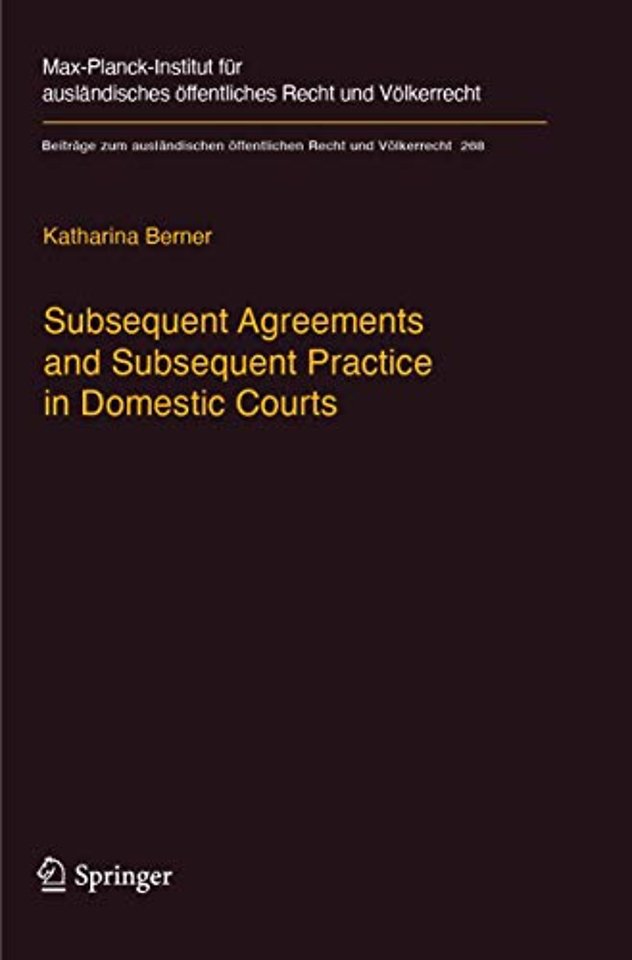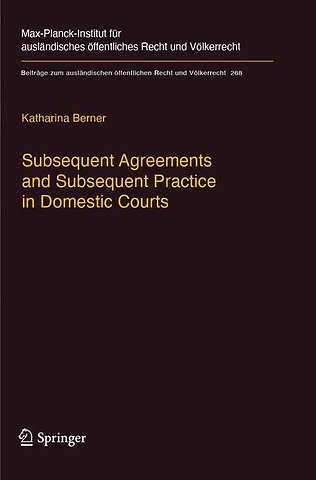Subsequent Agreements and Subsequent Practice in Domestic Courts
Samenvatting
The book analyses how subsequent agreements and subsequent practice as defined in articles 31 and 32 of the 1969 Vienna Convention on the Law of Treaties have been applied in interpretative reality. Based on the jurisprudence of domestic courts, it elucidates the distribution of power between the parties to a treaty and other actors. To start with, the book traces the origins of subsequent agreements and subsequent practice and places them in their broader legal context. Next, it explores the legal status and effects of subsequent agreements and subsequent practice, explains why such agreements are only rarely used, and defines the relevance of non-party practice in the interpretative process. In closing, it critically examines how domestic courts have approached the normative heart of subsequent practice, i.e. the notion of ‘agreement’. Thus, this book ultimately challenges the traditional assumption that the parties are the joint masters of the treaty.
Specificaties
Inhoudsopgave
Net verschenen
Rubrieken
- aanbestedingsrecht
- aansprakelijkheids- en verzekeringsrecht
- accountancy
- algemeen juridisch
- arbeidsrecht
- bank- en effectenrecht
- bestuursrecht
- bouwrecht
- burgerlijk recht en procesrecht
- europees-internationaal recht
- fiscaal recht
- gezondheidsrecht
- insolventierecht
- intellectuele eigendom en ict-recht
- management
- mens en maatschappij
- milieu- en omgevingsrecht
- notarieel recht
- ondernemingsrecht
- pensioenrecht
- personen- en familierecht
- sociale zekerheidsrecht
- staatsrecht
- strafrecht en criminologie
- vastgoed- en huurrecht
- vreemdelingenrecht

